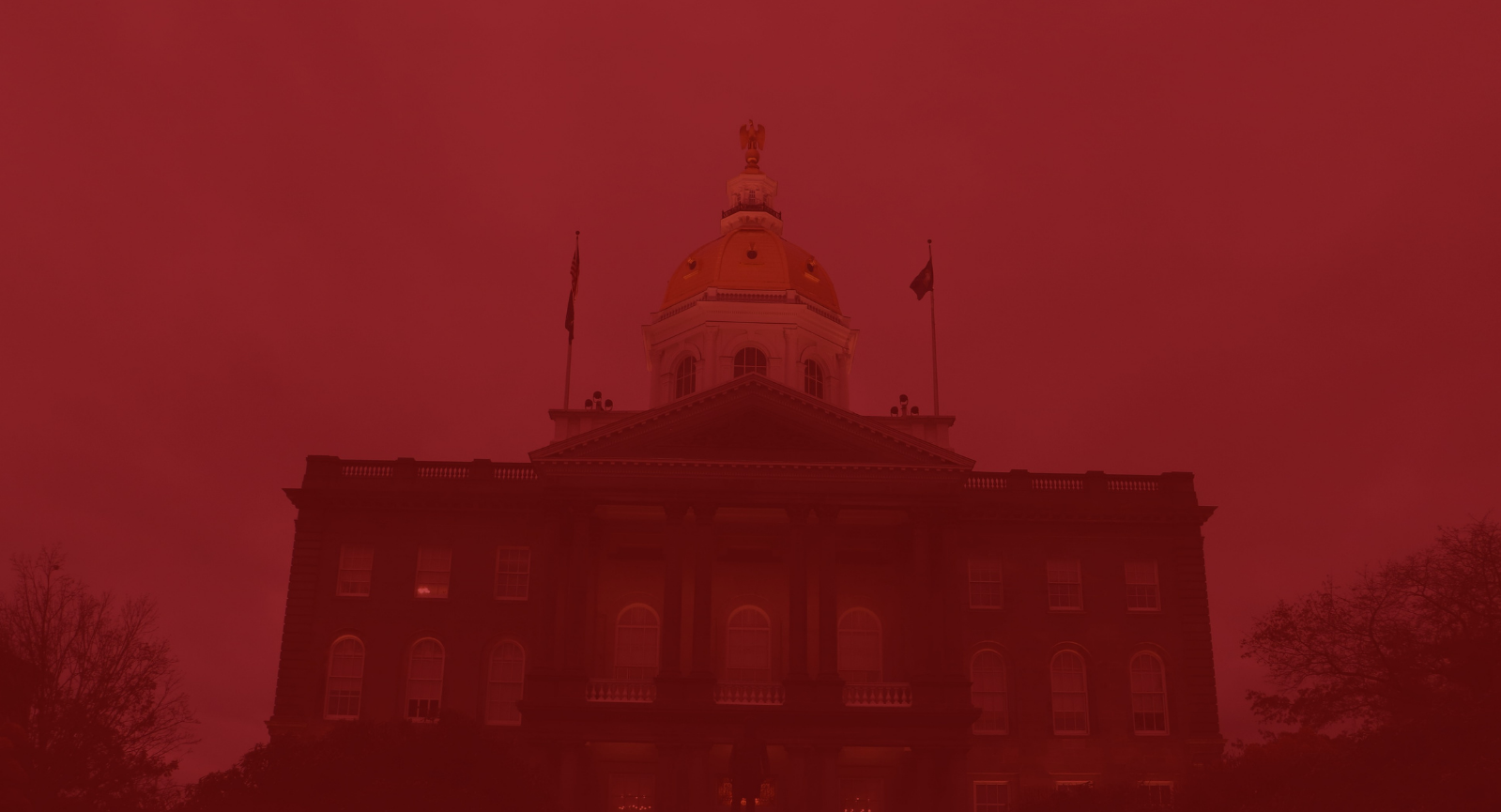2021-2022
Legislative Accomplishments
Legislative Accomplishments
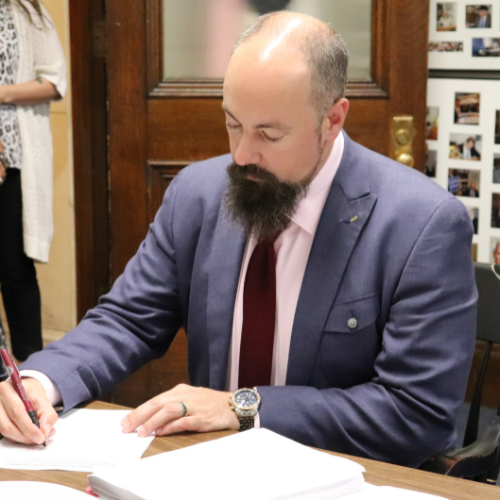
"Our historically low unemployment rate, the additional jobs added, the growth in small business, is all a result of sound fiscal management and Republican policies passed by the New Hampshire state legislature.”
-Majority Leader Jason Osborne (R-Auburn)
Fiscally Responsible Spending

● Fiscally responsible and balanced state budget that has $13.5 billion in total spending (HB1)
● Cut spending by $172.5 million over the prior state portion of the budget, and a roughly 3% cut
from budget to budget (HB1)
● Built the Rainy Day Fund up to $257 million over the biennium, the highest in state history
Tax Cuts for All New Hampshire Residents
● Decreased the State-Wide Education Property Tax (SWEPT) by $100 million directly resulting in
lower property tax bills for constituents across the state with no effect on the dollars going to
schools (HB2)
● Reduced the Meals and Rooms Rate to 8.5% making our hospitality industry more affordable
(HB2)
● Fully phased out the Interest and Dividends Tax Over five years, making New Hampshire officially
income tax free (HB2)
● Reformed the definition of “veteran” to ensure that any veteran who served in any active duty
status and continues to serve qualifies for the veterans’ property tax credits (HB1667)
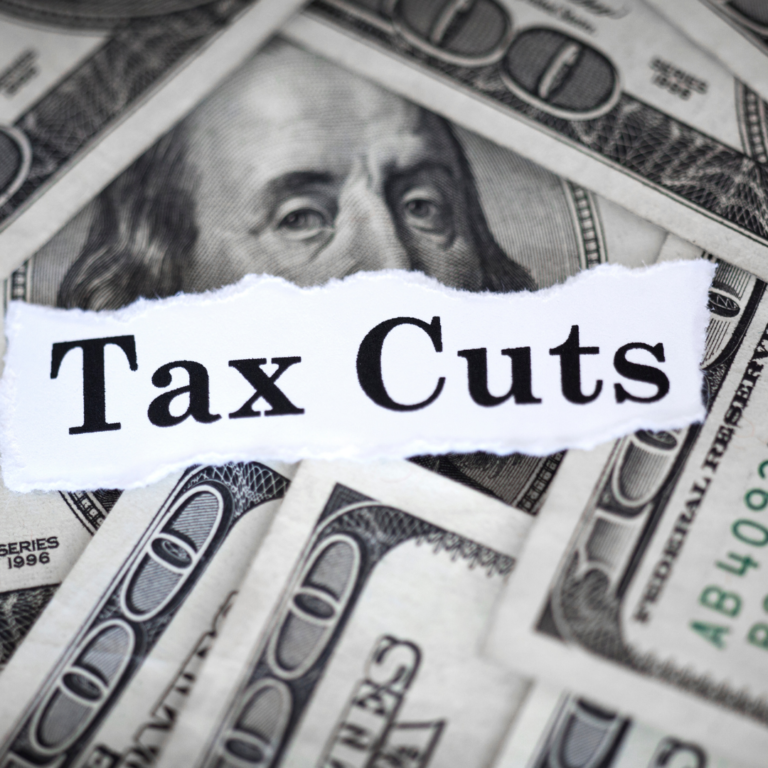
Money Back to Municipalities
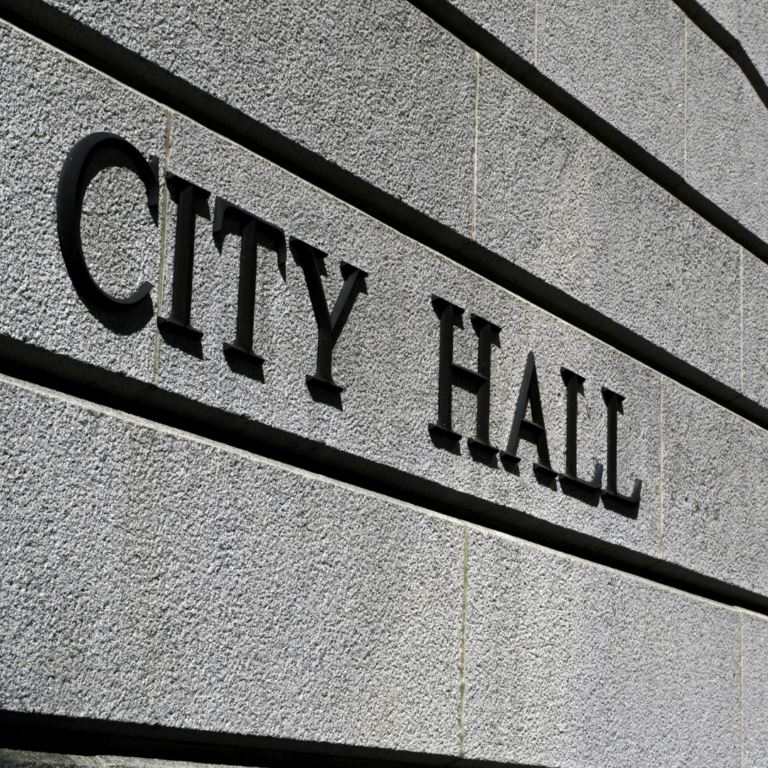
● Created a Meals and Rooms Municipal Revenue Fund, finally earmarking revenue back to cities
and towns, and preventing it from being siphoned off to fund state government (HB2)
○ 30% revenue collected annually from Meals and Rooms Tax will be restricted for
distribution to cities and towns based on population.
● Provided $15.6 million in FY 2021 for grants for wastewater projects across the state (HB1,HB2)
● Provided $83.3 million in estimated aid to municipalities by fully funding highway block grants at
$69.7 million over the biennium and appropriating $13.6 million in state aid for municipal bridge
projects (HB1,HB2)
● Sent over $60 million to municipalities for bridge aid and road maintenance (SB401)
● One-time payment to municipalities to reduce municipal retirement payments and provide
property tax relief (HB1221)
Making New Hampshire More Business Friendly
● Reduced the Business Enterprise Tax rate to 0.55% and increased the filing threshold to help both large and small job creators pay less in taxes, and invest more in their business and workforce (HB2). Over 30,000 small businesses will now be exempt from tax filings.
● Reduced the Business Profits Tax rate from 7.7% to 7.5% to help us remain competitive regionally and help attract more better paying jobs (HB2 and HB1221)
● Exempted businesses from paying state taxes on federal relief money: Businesses should not be forced to pay taxes on money intended to keep them afloat during the pandemic. (SB3)
● Allowed liquor manufacturers to offer samples at farmers markets (SB18)
● Permitted restaurants the ability to deliver beverages and wine (SB66)
● Cut regulations on local breweries, affording them the same freedom as their larger counterparts
(SB125)
● Helped improve access to high speed internet through broadband matching grants (SB445)
● Loosened regulations on homestead food operations (HB314)
● Extended the hours in which games of chance may be conducted (SB318)

Education

● Established Education Freedom Savings Accounts to increase education choice by allowing parents to find the right fit for their child regardless of zip code (HB2)
● Prohibited the practice of teaching the divisive & false idea that an individual is inherently racist simply due to the color of their skin (HB2)
● Increased state aid of nearly $100.0 million over the biennium to the education funding formula (HB1)
● Fully funded aid to public charter schools, based on enrollment estimates provided by the Department, totaling approx. $47.0 million in FY 22 and $49.5 million in FY 23 (HB1)
● Provided $1.0 million over the biennium for lease aid to public charter schools. Also increased the maximum annual aid amount per school from $30,000 to $50,000 (HB2)
● Provided full funding to school districts that began full-day kindergarten programs in the 2019-20 and 2020-21 school years, ensuring school districts that begin full-day kindergarten programs would receive full adequacy payments in the first year of the program (SB 82)
● Provided $82.0 million for school building aid (HB1)
● Provided $67.2 million over the biennium to fully-fund special education aid for higher cost students (formerly known as “catastrophic aid”) to school districts (HB1)
● Provided $18.0 million over the biennium for career and technical education (CTE) tuition and transportation aid to school districts (HB2)
● Provided $1.5 million over the biennium for the NH Robotics Education Development Program.
● Gave schools the ability to display “In God We Trust,” and “Live Free or Die,” Our national and state mottos (HB 69)
● Assured that our students have adequate knowledge of civics and our country’s heritage by mandating that students pass a United States Naturalization exam (HB320)
● Gave charter schools first access to unused school district facilities, assuring that charter schools
have the opportunity to grow and that school districts do not waste real estate (HB278)
● Encouraged students to pursue technical education by providing them with more information about vocational schools and established a subcommittee to study tuition and transportation funding (HB304) (SB148)
● Removed the restriction preventing religious private schools from being approved as a tuition program (HB282)
● Gave parents the ability to sue a school that did not adequately protect their child from bullying (HB140)
● Supported special needs students by placing the burden of proof on a school district in cases where parents sue over a proposed IEP (HB581)
● Ensured students receive instructions in financial literacy (HB126)
Health and Human Services
● Closed the Sununu Youth Services Center (HB2)
● Appropriated $30 million for a 24-bed secure psychiatric facility, in addition to the $8.75 million appropriated for this purpose during the prior biennium (HB1,HB2)
● Additional $8 million for mobile crisis units and community mental health programs (HB2)
● Fully funded the Developmental Disability waitlist by providing $335 million in general funds and $330 million in federal funds for developmental services over the biennium (HB1)
● Protected vulnerable citizens from financial exploitation (SB385)
● Removed bureaucratic red tape preventing qualified healthcare professionals from joining our workforce in a timely fashion (HB1030, HB1659)
● Defended personal liberty by requiring state hospitals and medical facilities to grant religious and medical exemptions from vaccination requirements (HB1604-FN)
● Slammed the door on vaccine passports by prohibiting the state from demanding businesses require vaccination or documentation of vaccination (HB1495-FN)
● Prohibited the state from enforcing overreaching and unconstitutional federal vaccine mandates (HB1455)
● Affirmed patients’ rights by codifying the right of a patient to designate someone to be present while they receive medical care, known as the Patient Support Act (HB1439)
● Defended the rights of patients by prohibiting health care providers from discriminating based on patient vaccination status (HB1003)

Election Integrity

● Protected New Hampshire’s elections from Washington overreach by prohibiting the implementation of measures from the “For the People Act” in State, county, and local elections
(SB89)
● Authorized an audit of the Windham State Representative Race (SB43)
● Mandated photographs to be taken of voters who register using the affidavit form, deterring voter fraud and double voting (HB523)
● Mandated that towns conduct thorough procedures for verifying voter checklists, ensuring more security in our elections (HB285)
● Modified the actions that supervisors of the checklist must take to enroll voters to the checklist, and modified the absentee voter affidavit to make our elections more secure and assure that
voters who transfer voter registration from another state are handled properly (SB31)
● Required that city and town clerks report daily on candidates who declare runs for office, making information more accessible and transparent (HB77)
● Made our absentee ballot lists electronic, allowed political parties and candidates to receive and subscribe to absentee ballot lists, and made the election process more transparent (HB326)
(HB223) (HB326)
● Permitted cities and towns to modernize our elections by using electronic poll books to review and maintain our voter rolls (SB46)
● Strengthened the integrity of New Hampshire’s election by banning any electronic voting machine from having access to or being connected to the internet (HB1157)
● Increased confidence in New Hampshire’s elections by requiring that the Secretary of State conduct audits of ballots cast in the 2022 primary and general elections (SB366)
● Clarified the chain of custody of ballot boxes after an election to ensure that procedures are clear for election officials to follow (HB1457-FN)
● Increased penalties for election official misconduct (SB 405)
● Improved verification of voter affidavits (SB 418)
Emergency Preparedness and Reform
● Provided needed modest reforms and oversight to the Governor’s Emergency Powers (HB2)
● Refunds any businesses fined under executive or emergency orders due to COVID-19 (HB2)
● Provided the Legislature with additional checks on DHHS emergency powers by letting the HHS oversight committee review and rescind emergency orders issued by the commissioner (HB187)
● Made it easier to provide medical staff, covid tests, and allowed flexibility for camps, businesses, and pharmacies to operate in the pandemic and future (SB155)
● Waived certain regulations for businesses temporarily working in New Hampshire due to the State of Emergency (SB103)
● Fought for needed reform to the governor’s ability to declare, renew, and terminate a state of emergency by giving oversight to the general court (HB275)
● Allowed DHS to send financial assistance to aid municipalities that experience disasters and emergencies (SB402-FN)
● Stood up for individuals’ rights by prohibiting the suspension of civil liberties during a declared state of emergency (HB440)

Personal Liberty

● Banned requiring COVID-19 immunization to access a public facility, benefit, or service from the State of New Hampshire or it’s subdivisions (HB220)
● Protected religious liberty in emergencies by ensuring churches and religious organizations are held to the same standard as businesses (HB542)
● Repealed the prohibition on side tinted windows in cars (HB224)
● Allowed children under the age of 14 to operate a lemonade stand without a license (HB183)
● Required Police Officers to inform a motor vehicle operator they have the right to refuse a warrantless motor vehicle search (SB40)
● Permitted individuals to give free haircuts without fear of criminal penalties (HB606)
Public Safety
● Increased the statute of limitations for minor victims of assault, allowing additional time for children to come forward (HB239)
● Established an enhanced penalty for those who have prior convictions for driving under the influence of drugs or liquor (HB179)
● Provided $500,000 to Internet Crimes Against Children Fund (HB2)
● Invested in Granite Shield, which continues to work on drug trafficking interdiction aimed at preventing the supply of illegal drugs from entering NH (HB2)
● Increased funding for police body-worn and dashboard cameras (SB 401)

Protecting the Unborn
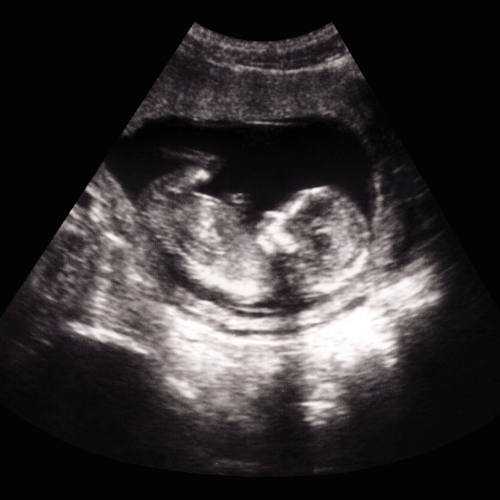
● Prohibited state funds from being used to perform abortions (HB2)
○ The commissioner of DHHS will inspect financial records to monitor compliance, a report will be submitted to the governor and council.
○ Should the grant recipient be in breach of their contract, they forfeit all rights to further funding, and suspend all operations until they are physically and financially separate from any reproductive health facility.
● Passed the Fetal Life Protection Act, which prohibited a health care provider from performing an abortion after 24 weeks (HB625)
Energy
● Protected Electric Ratepayers by restoring legislative authority over defacto electricity taxes
(HB549)
● Preserved an important energy efficiency program while ensuring ratepayers are protected from
unsustainable cost increases (HB549)

Environment

● Set standards for statewide PFAS contamination remediation standards and provided $25M for the PFAS Remediation Loan Fund (HB1547)
● Improved testing for lead in drinking water in schools and childcare centers (HB 1421)
● Increased state funding for wastewater projects by $12.65M (HB398)
Streamlining and Government Transparency
● Required that a list of minutes from nonpublic sessions be accessible to the public, increasing
transparency (HB108)
● Consolidated the Public Utilities Commission, the Office of Strategic Initiatives, Consumer
Advocate, and Site Evaluation Committee to create the Department of Energy (HB2)
● Reformed licensing requirements for cosmetologists and estheticians intending to expand the
scope of their practice (HB70)
● Removed a loophole allowing county governments to indefinitely delay an audit of their books
(HB101)
● Expanded eligibility criteria for licensure as a Licensed Nursing Assistant (LNAs) (HB567)
● Increased access to mental health care by creating a fast track for telemedicine licenses for
psychologists (SB133)
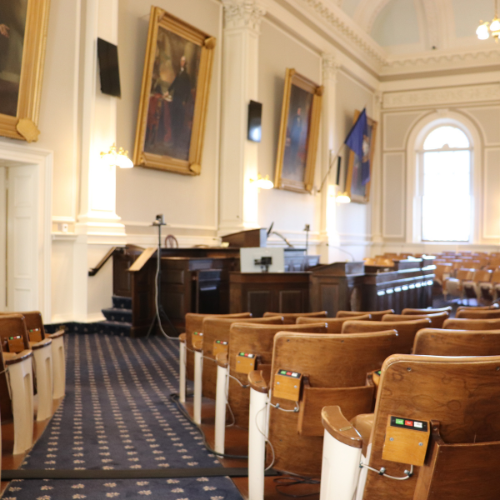
Occupational Licensing Reform

● Required temporary occupational licenses to be issued to qualifying members of the armed forces and their spouses (HB1653)
● Expanded emergency licensure to assist healthcare workers on the frontlines of the COVID-19 pandemic, providing relief to the healthcare worker shortages in New Hampshire (SB277-FN)

